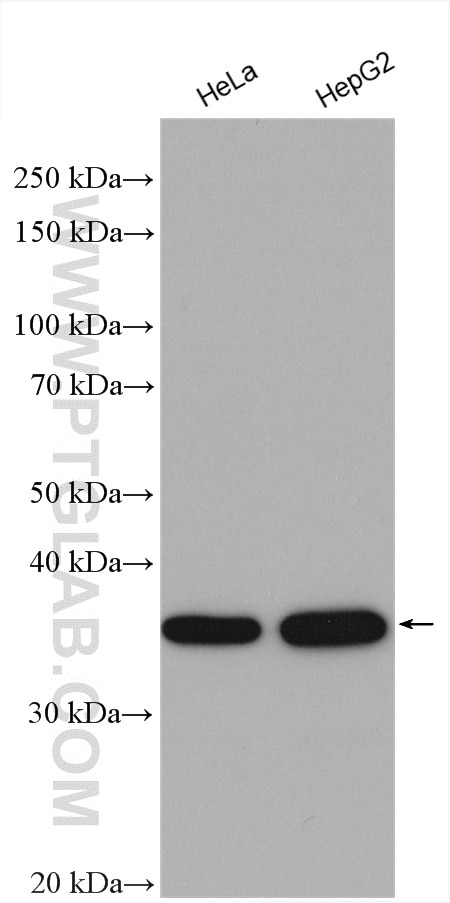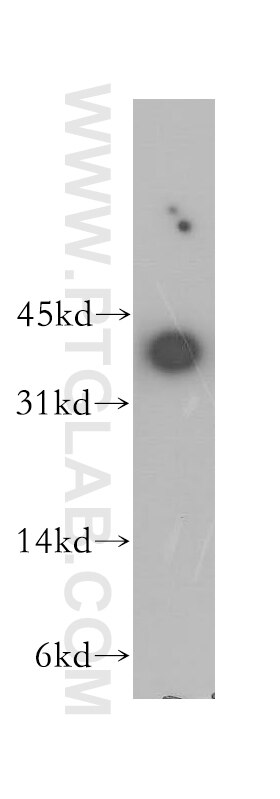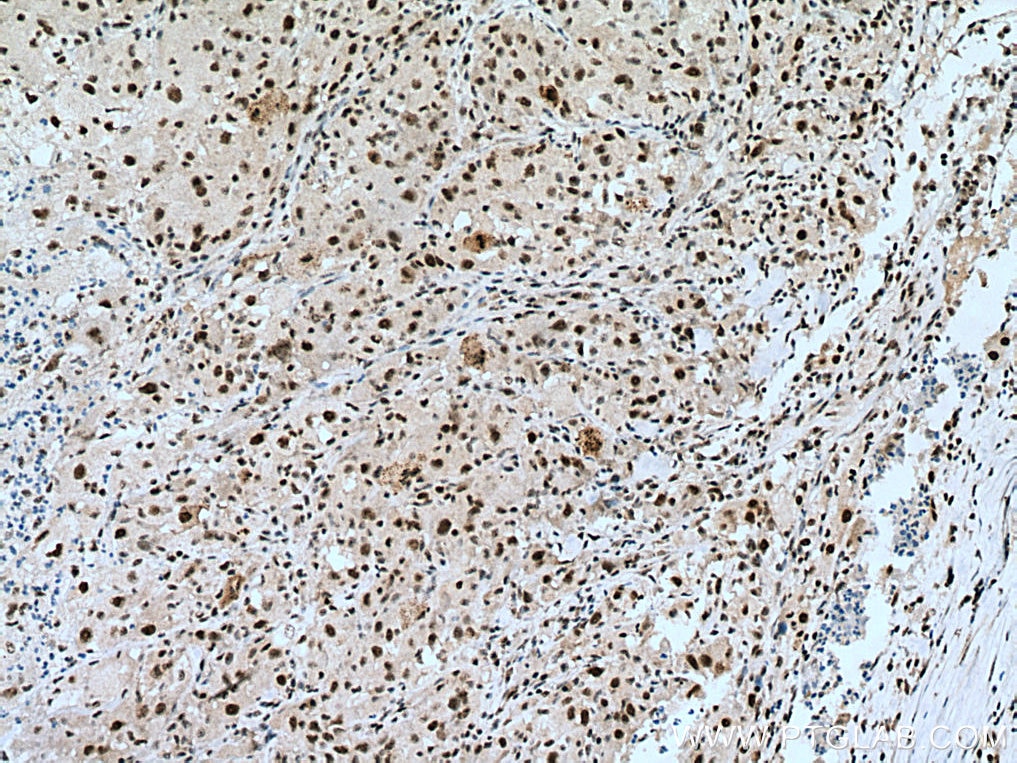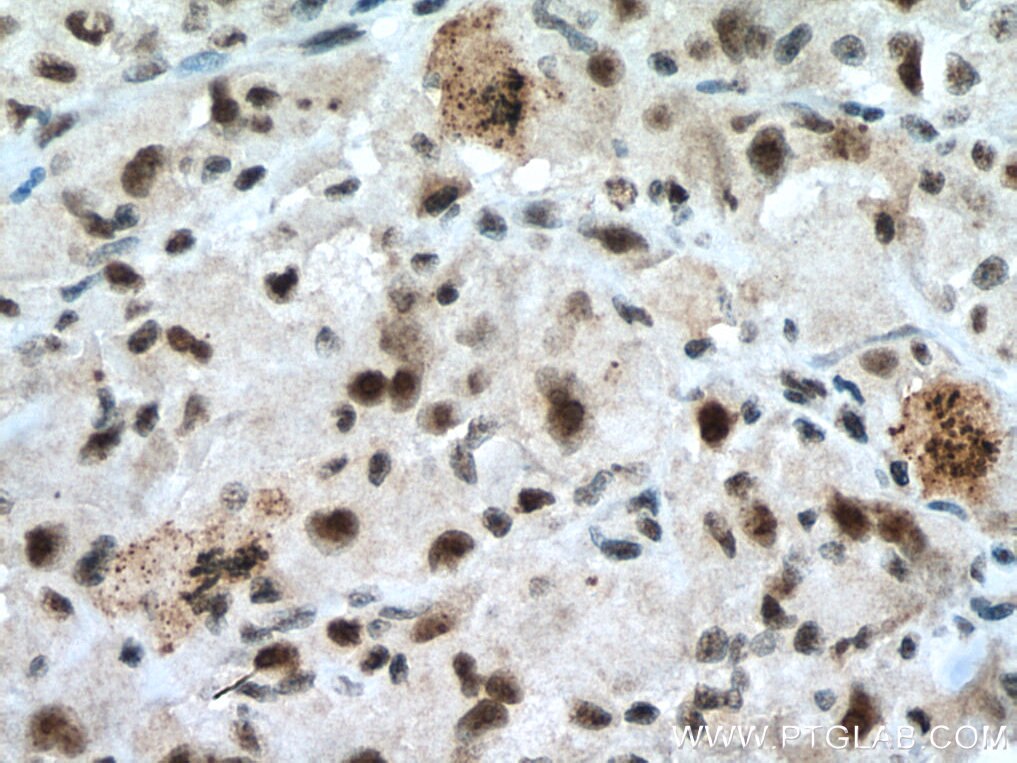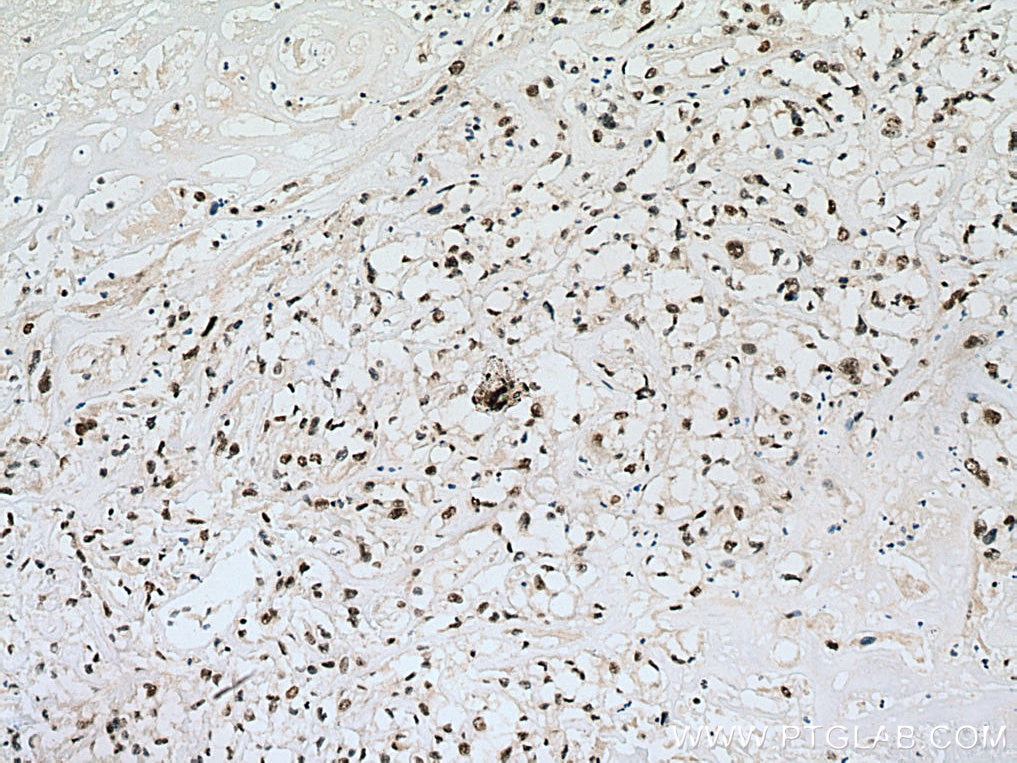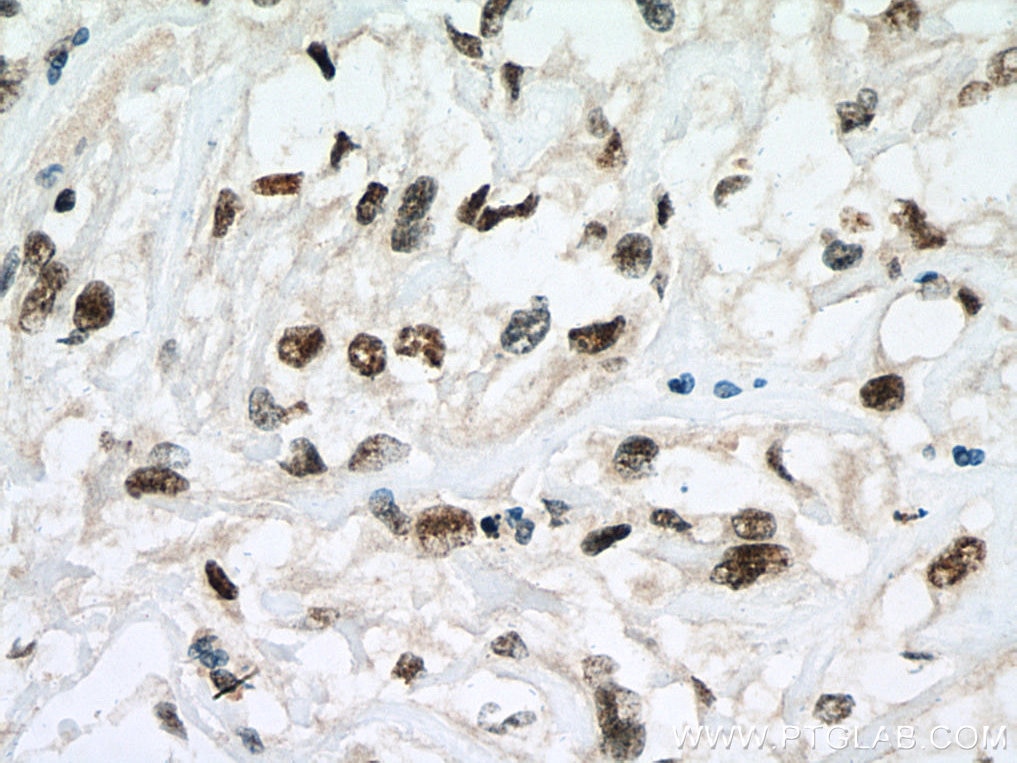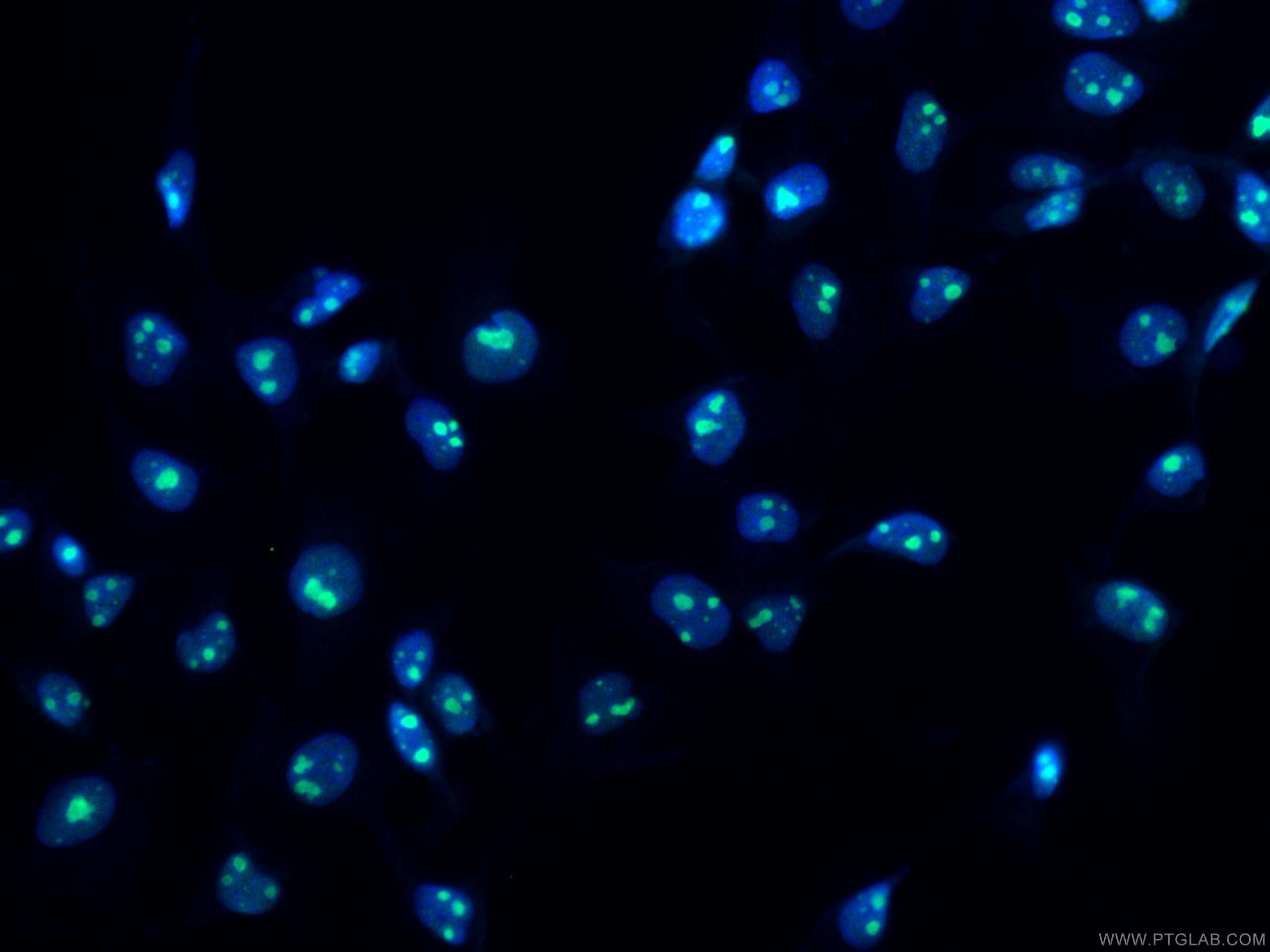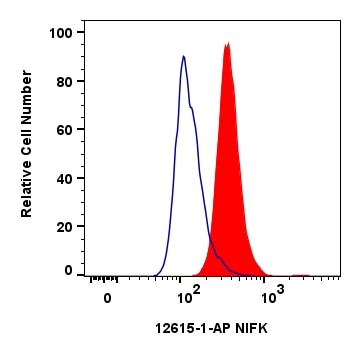Tested Applications
| Positive WB detected in | HeLa cells, HEK-293 cells, HepG2 cells |
| Positive IHC detected in | human liver cancer tissue, human renal cell carcinoma tissue Note: suggested antigen retrieval with TE buffer pH 9.0; (*) Alternatively, antigen retrieval may be performed with citrate buffer pH 6.0 |
| Positive IF/ICC detected in | MCF-7 cells |
| Positive FC (Intra) detected in | MCF-7 cells |
Recommended dilution
| Application | Dilution |
|---|---|
| Western Blot (WB) | WB : 1:1000-1:8000 |
| Immunohistochemistry (IHC) | IHC : 1:500-1:2000 |
| Immunofluorescence (IF)/ICC | IF/ICC : 1:50-1:500 |
| Flow Cytometry (FC) (INTRA) | FC (INTRA) : 0.40 ug per 10^6 cells in a 100 µl suspension |
| It is recommended that this reagent should be titrated in each testing system to obtain optimal results. | |
| Sample-dependent, Check data in validation data gallery. | |
Published Applications
| WB | See 2 publications below |
Product Information
12615-1-AP targets NIFK in WB, IHC, IF/ICC, FC (Intra), ELISA applications and shows reactivity with human samples.
| Tested Reactivity | human |
| Cited Reactivity | human |
| Host / Isotype | Rabbit / IgG |
| Class | Polyclonal |
| Type | Antibody |
| Immunogen |
CatNo: Ag3284 Product name: Recombinant human MKI67IP protein Source: e coli.-derived, PGEX-4T Tag: GST Domain: 5-293 aa of BC024238 Sequence: SGPAGPILSLNPQEDVEFQKEVAQVRKRITQRKKQEQLTPGVVYVRHLPNLLDETQIFSYFSQFGTVTRFRLSRSKRTGNSKGYAFVEFESEDVAKIVAETMNNYLFGERLLECHFMPPEKVHKELFKDWNIPFKQPSYQSVKRYNRNRTLTQKLRMEERFKKKERLLRKKLAKKGIDYDFPSLILQKTESISKTNRQTSTKGQVLRKKKKKVSGTLDTPEKTVDSQGPTPVCTPTFLERRKSQVAELNDDDKDDEIVFKQPISCVKEEIQETQTPTHSRKKRRRSSNQ Predict reactive species |
| Full Name | MKI67 (FHA domain) interacting nucleolar phosphoprotein |
| Calculated Molecular Weight | 293 aa, 34 kDa |
| Observed Molecular Weight | 34 kDa |
| GenBank Accession Number | BC024238 |
| Gene Symbol | NIFK |
| Gene ID (NCBI) | 84365 |
| RRID | AB_2142384 |
| Conjugate | Unconjugated |
| Form | Liquid |
| Purification Method | Antigen affinity purification |
| UNIPROT ID | Q9BYG3 |
| Storage Buffer | PBS with 0.02% sodium azide and 50% glycerol, pH 7.3. |
| Storage Conditions | Store at -20°C. Stable for one year after shipment. Aliquoting is unnecessary for -20oC storage. 20ul sizes contain 0.1% BSA. |
Protocols
| Product Specific Protocols | |
|---|---|
| FC protocol for NIFK antibody 12615-1-AP | Download protocol |
| IF protocol for NIFK antibody 12615-1-AP | Download protocol |
| IHC protocol for NIFK antibody 12615-1-AP | Download protocol |
| WB protocol for NIFK antibody 12615-1-AP | Download protocol |
| Standard Protocols | |
|---|---|
| Click here to view our Standard Protocols |
Publications
| Species | Application | Title |
|---|---|---|
iScience Multi-omics approach reveals posttranscriptionally regulated genes are essential for human pluripotent stem cells. | ||
Mol Cell Alphavirus infection triggers selective cytoplasmic translocation of nuclear RBPs with moonlighting antiviral roles |

